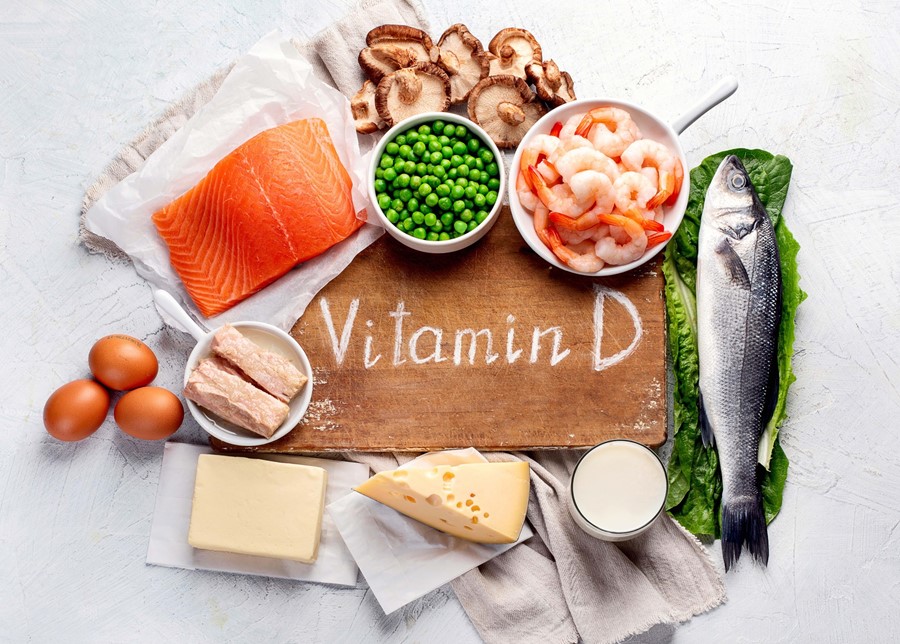As we approach winter our natural source of Vitamin D in northern climates is disappearing and there are very significant reasons why we should all consider Vitamin D supplementation. It is estimated that more than 1 billion people are Vitamin D deficient, with Europeans being amongst the highest
Why is this Vitamin so important?
-
Vitamin D is Life-Saving: Statistics have been gathered during the pandemic about the increased risk of death for those who have been hospitalized. We are all aware of the dangers of obesity, high blood pressure, heart disease, diabetes and those with inflammatory disease, but the dangers of Vitamin D deficiency is not getting the publicity it deserves
What are healthy levels? 30ng/ml is considered the minimum healthy level, although 40ng/ml is better. 20 – 30 is insufficient and less than 20 is deficient
What are the elevated risks of being deficient? If you are hospitalized with the virus and develop pneumonia, the associational risk of death is nearly 8 times higher if you are Vitamin D insufficient and 10 times higher if you are deficient. This is a frightening statistic!
Spanish Flu: In 2018 - 2019, the deadliest flu in modern history killed an estimated 50 million people which represented about 2.7% of the world’s population. To put that in to perspective, the current virus has killed 0.0026% of the world’s population. However, the infection rate went in to decline during summer months, demonstrating the first clear evidence that Vitamin D was life-saving
Darker Skin: Those with dark skin are at higher risk of death, because the darker your skin, the more UV you naturally filter out. In northern climates where we see less sunlight, people with darker skin are naturally more Vitamin D deficient. We are seeing much higher death rates in darker-skinned people

So there is a very obvious need for all of us to maintain sufficient Vitamin D levels at the moment, but what are the other roles Vitamin D plays in maintaining our health?
-
Vitamin D Strengthens Bones: Vitamin D is one of several nutrients that contribute to the health of bones, others important ones being boron, phosphorus, calcium, magnesium and vitamin C. Vitamin D helps us absorb calcium, (but beware ordinary calcium supplements, their effectiveness is questionable at best – only take foodstate calcium)
-
Vitamin D Reduces The Risk of cancer: 08-Jun-2007 - A growing body of scientists believes that most Americans and Europeans do not receive enough vitamin D, and according to the latest study this could be putting them at a significant risk of developing cancer. Researchers from the Creighton University School of Medicine, in the United States found during a study of 1,179 healthy, postmenopausal women that those taking large amounts of vitamin D3 in conjunction with calcium had a 60 per cent or higher chance of not getting cancer than their peers. "The findings are very exciting," said Joan Lappe, the study's lead researcher. "They confirm what a number of vitamin D proponents have suspected for some time but that, until now, have not been substantiated through clinical trial. Vitamin D is a critical tool in fighting cancer as well as many other diseases."
There is also evidence that a higher intake of vitamin D may be helpful in preventing and treating diseases other than cancer, such as high blood pressure, fibromyalgia, diabetes mellitus, multiple sclerosis and rheumatoid arthritis
-
Vitamin D helps reduce high blood pressure: People with low blood levels of vitamin D may be at an increased risk of higher blood pressure - a problem that could be easily remedied with supplements. In the UK alone, there are an estimated 10m people with hypertension, defined as having blood pressure higher than 140/90 mmHg. The condition is a major risk factor for cardiovascular disease, which causes almost 50 per cent of deaths in Europe
-
Vitamin D deficiency linked to greater pain: A new study has linked vitamin D and a reduction of chronic pain, lending to voices calling for increased fortification or supplementation of the nutrient in diets
-
Vitamin D helps reduce the development of type 1 diabetes amongst children: With type 1 diabetes on the increase, especially in Europe, vitamin D supplementation may reduce the onset of this disease in children by 30%
-
Low Vitamin D levels linked to poor physical performance: This is particularly relevant to older people who show a clear correlation between poor physical performance and vitamin d deficiency

How do you ensure you are getting sufficient Vitamin D?
-
Diet: Meat, oily fish, fortified cereals and dairy products, eggs and certain mushrooms (exposed to UV light) are all high in Vitamin D
-
Get more sun: Natural sunlight is the cheapest way of getting sufficient Vitamin D. Oil under the skin mixes with sunlight to naturally generate Vitamin D. Burning should always be avoided
-
Supplementation: If your diet doesn’t provide sufficient Vitamin D and you prefer to avoid the sun (or cover up with sunscreen) then supplementation is advised
Foodstate Vitamin D - The Best Type Of Supplement: The cheapest form of Vitamin D supplement is sourced from animal fat or irradiated cattle brains. We source ours from lanolin (sheep’s wool) and then take it through the foodstate growth process to provide a fully-formed food version of Vitamin D that is much better absorbed, used and retained by the body







